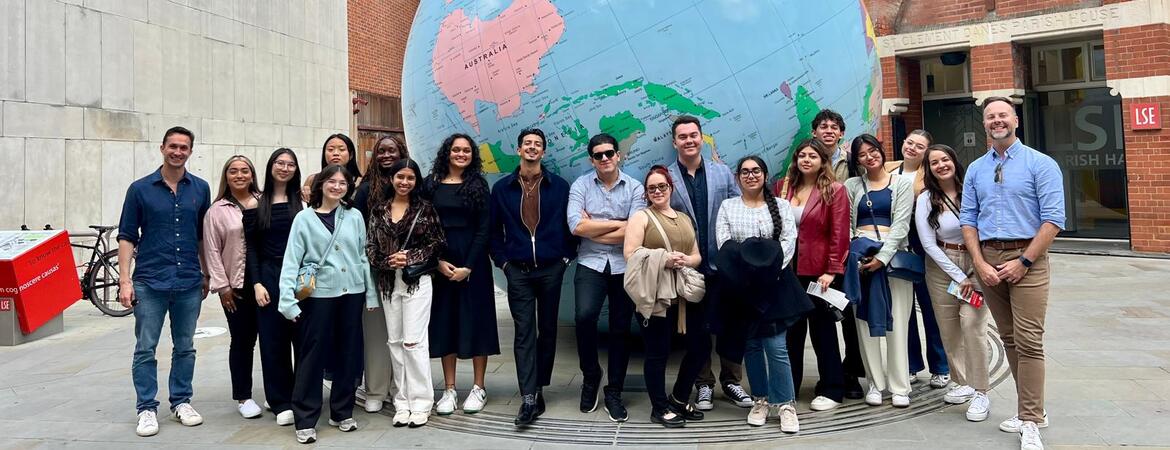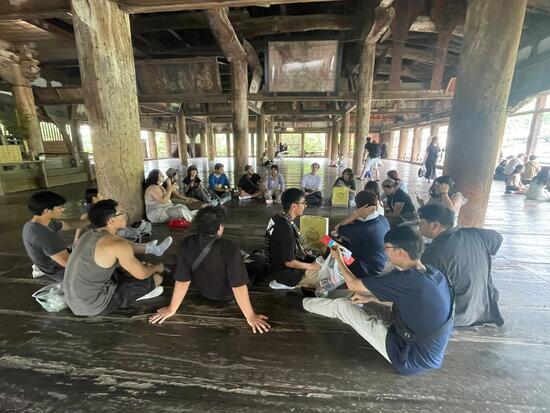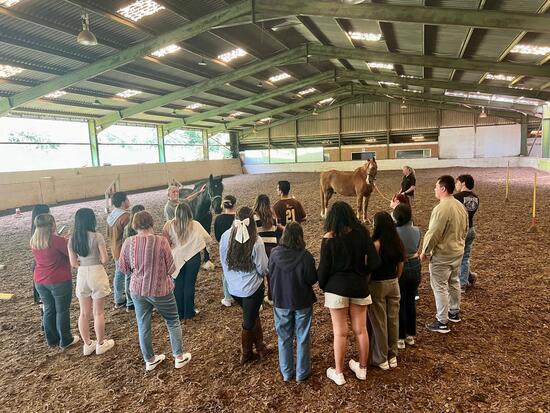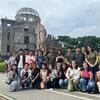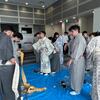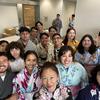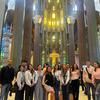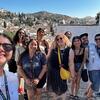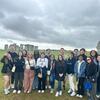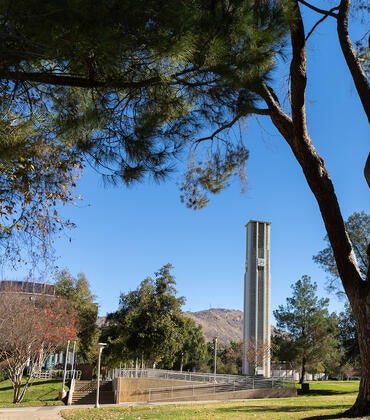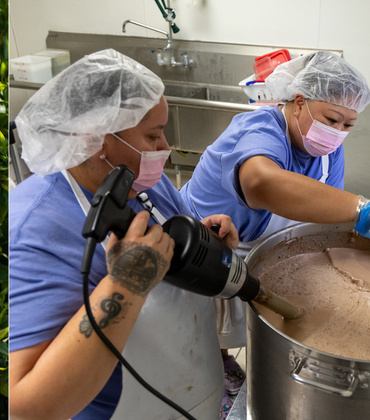A UC Riverside program offering students an opportunity to study abroad in faculty-taught courses reached a milestone this summer with its largest number of classes and enrollees since the pandemic.
The Faculty-Led Education Abroad Program, or FLEAP, had 109 students in nine courses, its highest number since 2018 when it had 119 students.
The summer enrollment represents a steady growth – including a rebuilding process that took place after the program was suspended for two years due to the pandemic.
“This is a national trend going on, that students are returning to travel,” said Sonja Lind, assistant director of Education Abroad.
After the program was suspended in the summers of 2020 and 2021, it returned with 44 students in three programs in 2022. Last year, it had 56 students in three courses. Enrollment in prior years was 100 in 2019, 34 in 2017, and 99 in 2016.
Part of the overall UCR Education Abroad program and one of three ways students can study abroad, FLEAP offers students a unique learning opportunity in small groups, typically 15 to 20 per course, said Marko Princevac, vice provost of International Affairs. Princevac noted that he was most excited about introducing more students to education abroad when he took on his current role. Education Abroad is in its 62nd year at UCR with FLEAP, previously known as Summer Study Abroad, started in 2010.
“Education abroad is a life-changing experience,” Princevac said. “It’s what changed my life.”
Participating also helps students graduate sooner, as they are essentially earning credits through a summer course. It also increases their employability as employers value candidates with global experiences, Princevac said. A report by the Institute of International Education found that students developed skills such as intercultural communication.
This summer’s destinations included an English course in London themed to authors such as Jane Austen; a psychology course in Hong Kong focused on child development; and media and cultural studies in Chiba, Japan.
The programs originate with faculty members who submit proposals describing what subject they would like to teach, their location, why they chose that location, and how that experience will broaden students’ understanding of the subject. The Education Abroad team works with them to help shape the programs and market them to students, Lind said.
The courses typically run for three to five weeks, with students earning four units on credit-bearing programs.
Randol Contreras, an associate professor in media and cultural studies, taught his second course this summer on the subject of drugs and crimes in Barcelona, Spain, comparing crime policies of the United States and Spain. He taught a similar course in Lisbon, Portugal, last year and hopes to lead his third program next summer.
Contreras became interested in teaching abroad because he got a late start in traveling to different countries and realized he had missed out. He wanted to ensure UCR students had an opportunity to immerse themselves in different cultures and learn about the world.
“I especially want students to get a more complex and sophisticated understanding of the world that comes from an exposure to different national and cultural perspectives and histories,” he said. “In short, I want UCR students to become global citizens.”
Kyle Ingram, an assistant professor of teaching in management with the School of Business, led a program called “The London Leadership Experience,” which included visits to key business and government institutions. Students also took part in activities like racing down the Thames River in a speed boat, touring Stonehenge, and visiting a horse stable, where they practiced leaderships skills through their ability to lead a horse around.
In addition to learning about global business leadership styles, the program, which has been offered in previous years and has been one of the more popular ones, pushed students out of their comfort zones, Ingram said.
“By the end of the program, students have not only enhanced their academic knowledge but have also developed critical soft skills such as adaptability, cross-cultural communication, and problem-solving,” Ingram said. “These are essential for anyone looking to lead in today’s interconnected world. It’s incredibly rewarding to see how much students grow, both personally and professionally, through this experience.
For many students, this may be their first time traveling abroad or even applying for a passport, Lind said. Education Abroad helps them through those logistics, providing them with the skills and confidence to learn about international travel, she said.
Students pay fees to participate in the program, but financial aid and scholarships are available to those who need it. Education Abroad helps students apply for scholarships and grants so that no one is unable to participate due to financial hardship, Lind said.
Princevac said he hopes to see the program continue to grow and expand to new places like India, Africa, and Vietnam.
Learn more about UCR education abroad programs at international.ucr.edu/abroad. Faculty members interesting in developing a program can learn more at international.ucr.edu/abroad/fleap-become-faculty-member.
Photos courtesy of Education Abroad
